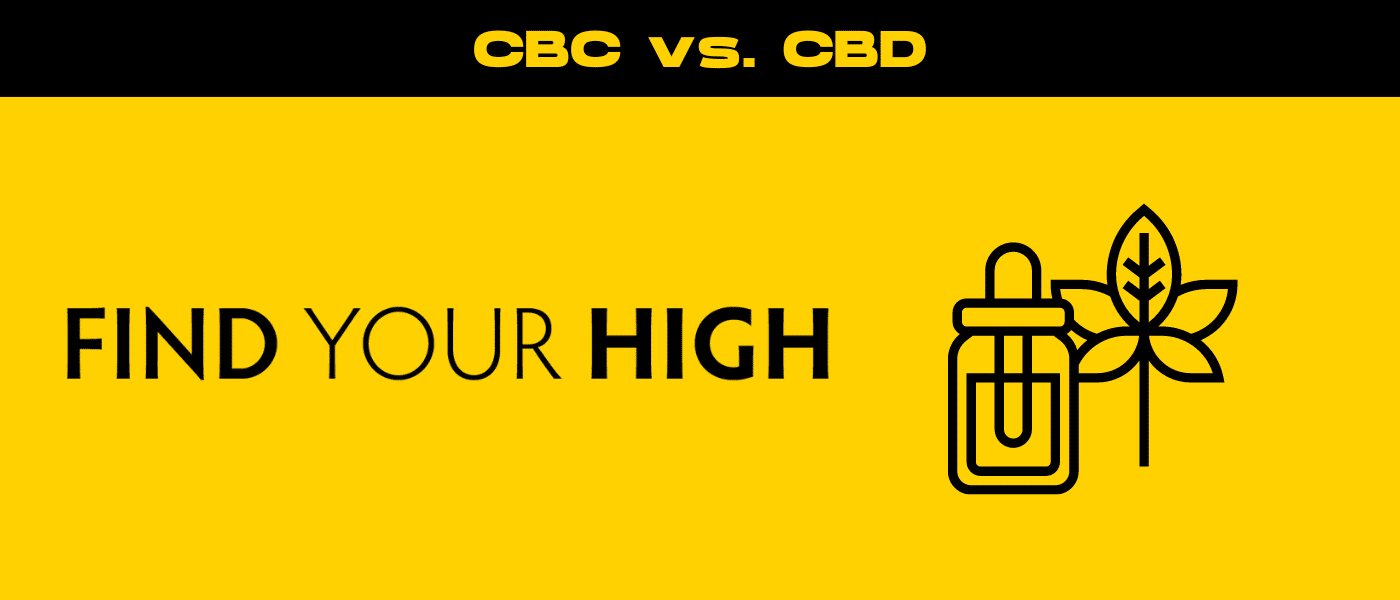The world of cannabinoids has exploded in recent years, with cannabis and hemp-derived compounds becoming increasingly popular for their therapeutic potential. Among the many cannabinoids found in these plants, CBD (Cannabidiol) has gained mainstream recognition for its ability to promote relaxation, reduce anxiety, and offer pain relief without the psychoactive effects of THC. However, a lesser-known but equally intriguing cannabinoid is CBC (Cannabichromene), which has been gaining attention for its unique properties and potential health and wellness benefits. So, which is the superior cannabinoid? Welcome to the showdown: CBC vs CBD.
While both CBC and CBD are non-psychoactive and offer therapeutic effects, they interact with the body differently, making each one more suitable for specific needs. In this guide, we’ll explore the fundamental differences between these two cannabinoids, how they work, their benefits, and how to determine which one is best suited for you.
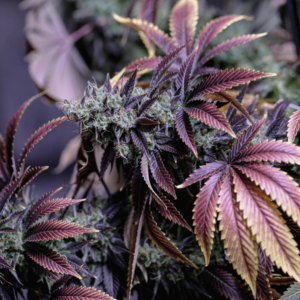
What Are Cannabinoids?
Cannabinoids are naturally occurring compounds found in cannabis and hemp plants. These compounds interact with the body’s endocannabinoid system (ECS), which plays a crucial role in regulating various physiological functions, including mood, pain perception, immune response, and inflammation.
There are over 100 known cannabinoids, with THC and CBD being the most well-known. However, researchers continue to uncover the unique properties of lesser-known cannabinoids like CBC, CBG, and CBN, each of which has distinct effects on the body.
Unlike THC, which binds directly to cannabinoid receptors in the brain to produce a “high,” many non-psychoactive cannabinoids, including CBD and CBC, interact more subtly with the ECS, offering potential therapeutic benefits without intoxication.
Introduction to CBC and CBD
CBD and CBC are both classified as non-intoxicating cannabinoids, meaning they won’t produce the euphoric effects associated with THC. However, their mechanisms of action and benefits differ significantly.
CBD is widely recognized for its calming effects, making it a go-to option for anxiety, stress relief, and overall wellness. It interacts indirectly with CB1 and CB2 receptors in the ECS and also influences serotonin receptors, contributing to its mood-stabilizing properties.
CBC, on the other hand, is lesser-known but shows promising potential for neuroprotection, inflammation reduction, and pain relief. Instead of strongly influencing CB1 or CB2 receptors, CBC interacts with TRPV1 (vanilloid receptors) and 5-HT1A receptors, which play key roles in pain perception, mood regulation, and neurogenesis.
How CBC and CBD Are Produced in Cannabis Plants
Both CBD and CBC originate from the same precursor compound—cannabigerolic acid (CBGA). Through enzymatic reactions within the cannabis plant, CBGA converts into CBDA (which becomes CBD) and CBCA (which becomes CBC).
While CBD is found in high concentrations in hemp plants, CBC is usually present in smaller amounts, making it more difficult and expensive to extract. However, as interest in minor cannabinoids grows, researchers and cultivators are developing methods to increase CBC production and isolate it for medical and therapeutic use.
Chemical Structure and Mechanism of Action
CBD and CBC share similar molecular structures but differ in how they interact with the ECS.
- CBD indirectly influences CB1 and CB2 receptors, modulating their activity rather than binding to them directly. It also interacts with serotonin receptors (5-HT1A), which contributes to its anti-anxiety and antidepressant effects.
- CBC, however, has a stronger affinity for TRPV1 and TRPA1 receptors, which are involved in pain signaling, inflammation, and neuroprotection. These interactions may explain why CBC has been studied for its potential role in brain health and pain management.
While their mechanisms differ, both cannabinoids contribute to overall wellness and may work synergistically when used together in full-spectrum cannabis products.
Psychoactive vs. Non-Psychoactive Properties
Neither CBC nor CBD causes intoxication, making them appealing options for those seeking cannabis’s benefits without the “high” associated with THC.
However, while CBD is primarily known for its calming and anxiolytic properties, CBC is believed to have subtle mood-enhancing effects due to its interaction with serotonin receptors. Some anecdotal reports suggest CBC may promote a sense of clarity and well-being, though more research is needed to understand its full psychoactive profile.
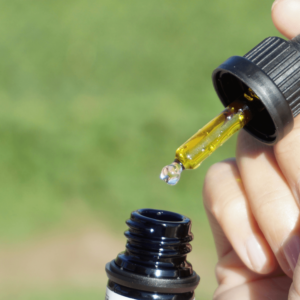
Potential Therapeutic Benefits of CBC
Although CBC is less researched than CBD, early studies suggest that it has promising therapeutic properties. Some of its potential benefits include:
- Anti-Inflammatory Effects – CBC oil may help reduce inflammation, particularly in the brain and gut.
- Neuroprotection – Research indicates CBC may support neurogenesis, the growth of new brain cells.
- Pain Management – CBC interacts with pain receptors, potentially making it effective for chronic pain conditions.
- Mood Regulation – By influencing serotonin receptors, CBC may offer antidepressant-like effects.
Potential Therapeutic Benefits of CBD
CBD has been extensively studied and is widely used for a variety of health concerns, making it one of the most versatile cannabinoids available. Its ability to interact with the endocannabinoid system (ECS), serotonin receptors, and pain receptors allows it to influence various bodily functions, leading to a range of therapeutic benefits. Some of the most notable uses of CBD include:
Anxiety and Stress Relief
CBD is well-known for its ability to reduce anxiety, promote relaxation, and improve mood without causing intoxication. It interacts with serotonin (5-HT1A) receptors, which are closely linked to emotional regulation, making it a potential natural alternative for individuals struggling with generalized anxiety disorder (GAD), social anxiety, PTSD, and everyday stress. Many users report that CBD helps them stay calm, focused, and emotionally balanced, without the drowsiness or dependency risks associated with pharmaceutical anti-anxiety medications.
Pain Management
One of CBD’s most popular uses is chronic pain relief. By modulating CB2 receptors and TRPV1 receptors (which influence pain perception and inflammation), CBD may provide relief for conditions such as arthritis, migraines, fibromyalgia, and nerve pain. Unlike opioids and NSAIDs, CBD offers a natural, non-addictive alternative for pain management, with fewer side effects. Some research suggests that combining CBD with other cannabinoids like CBC or THC can enhance its pain-relieving properties, making full-spectrum products particularly effective.
Epilepsy and Seizures
CBD’s medical potential was solidified when Epidiolex, a CBD-based prescription drug, became the first FDA-approved cannabis-derived medication for epilepsy. It is primarily used to treat severe seizure disorders such as Dravet syndrome and Lennox-Gastaut syndrome, which often don’t respond well to traditional anti-seizure medications. Studies have shown that CBD can significantly reduce seizure frequency and severity, making it a breakthrough treatment for epilepsy patients. Research is ongoing to explore its potential for other neurological conditions, including multiple sclerosis (MS) and Parkinson’s disease.
Sleep Support
Many people use CBD to help regulate sleep cycles, reduce nighttime anxiety, and improve overall sleep quality. Unlike traditional sleep aids, which can cause grogginess or dependency, CBD works by reducing cortisol levels (a stress hormone that can interfere with sleep) and promoting relaxation. Whether you struggle with insomnia, restless sleep, or trouble staying asleep, CBD may help by encouraging a natural, deeper rest without sedation. Some formulations, such as CBD products combined with melatonin or CBN (another sleep-promoting cannabinoid), are specifically designed to support healthy sleep patterns.
As research into CBD continues, more therapeutic applications are being discovered, reinforcing its reputation as a powerful, natural wellness aid.
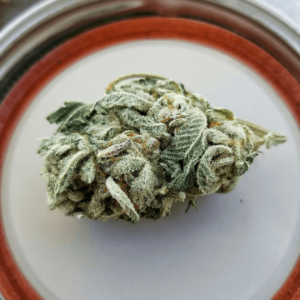
CBC vs. CBD for Pain Management
Both CBC and CBD offer promising natural pain relief, but they work through different mechanisms, making them more effective for specific types of pain. Understanding how each cannabinoid interacts with the body can help determine which one may be best suited for individual needs.
How CBC Helps with Pain
CBC primarily reduces inflammation at the source by interacting with TRPV1 (vanilloid) receptors, which are responsible for detecting pain, heat, and inflammation. This makes CBC particularly beneficial for conditions where inflammation is the root cause of discomfort, such as:
- Arthritis and joint pain – By targeting inflammation directly, CBC may help reduce swelling and stiffness.
- Muscle soreness and injuries – CBC’s anti-inflammatory effects can aid in post-workout recovery or injury-related pain.
- Gut inflammation and digestive discomfort – CBC may also be beneficial for inflammatory conditions like IBD or Crohn’s disease, where reducing gut inflammation can lead to pain relief.
Since inflammation often exacerbates chronic pain, CBC’s ability to work at the cellular level to inhibit inflammation may provide long-term relief for certain pain conditions.
How CBD Helps with Pain
CBD, on the other hand, is more focused on pain perception and nerve-related discomfort. It modulates CB2 receptors in the endocannabinoid system, which are primarily involved in immune response and pain regulation. This makes CBD highly effective for:
- Neuropathic pain – Conditions like sciatica, nerve damage, and diabetic neuropathy may respond well to CBD’s pain-modulating effects.
- Migraines and tension headaches – CBD may help by reducing inflammation in the nervous system and alleviating muscle tension that contributes to headaches.
- Fibromyalgia and chronic pain syndromes – Because CBD interacts with serotonin receptors in addition to CB2 receptors, it may also help regulate pain signals in disorders that cause widespread pain and fatigue.
CBD’s ability to reduce pain perception and calm overactive pain signals makes it a go-to option for individuals experiencing persistent or hard-to-treat pain.
Combining CBC and CBD for Enhanced Relief
For many people, using CBC and CBD together provides more effective, long-lasting relief than using either cannabinoid alone. Since CBC addresses inflammation directly, while CBD helps regulate pain signals, their synergistic effects may lead to:
- Greater reduction in inflammation-related pain (ideal for arthritis or autoimmune conditions).
- More effective relief for chronic pain disorders like fibromyalgia, where multiple pathways contribute to discomfort.
- A well-rounded, long-term pain management strategy without relying on pharmaceutical painkillers.
Some full-spectrum or broad-spectrum CBD products naturally contain CBC, but for targeted pain relief, individuals may benefit from trying higher concentrations of both cannabinoids together in tinctures, topicals, or capsules. As more research emerges, the combined power of CBC and CBD could become a leading natural approach to pain relief.
CBC vs. CBD for Anxiety and Mental Health
CBD is widely recognized for its anxiolytic properties, helping people manage stress, anxiety, and PTSD. Its ability to regulate serotonin receptors makes it particularly effective for mood stabilization.
CBC, while not as well-studied for anxiety, interacts with similar pathways and may offer antidepressant-like effects. Some users report that CBC provides a sense of mental clarity and positivity, though more research is needed to confirm these benefits.
Anti-Inflammatory Properties: CBC vs. CBD
Inflammation is at the root of many chronic conditions, from arthritis to digestive disorders.
- CBC is believed to be particularly effective for brain and gut inflammation, making it a potential option for IBD, Crohn’s disease, and neuroinflammation.
- CBD provides broader anti-inflammatory benefits, helping with everything from muscle soreness to autoimmune disorders.
Legality and Availability of CBC vs. CBD
CBD is widely available and federally legal in the U.S. as long as it’s derived from hemp with less than 0.3% THC.
CBC, however, is less common and may not be as widely available. Since it’s a minor cannabinoid, finding high-quality CBC-specific products can be more challenging.
Final Thoughts: The Future of CBC and CBD Research
While CBD has already made its mark in the wellness industry, CBC is an emerging cannabinoid with enormous potential. As research expands, we may see more CBC-based products targeting brain health, pain relief, and inflammation.
For now, CBD remains the more accessible option, but as the cannabis industry evolves, CBC is expected to gain popularity. If you’re interested in exploring these cannabinoids, look for high-quality, lab-tested products to ensure safety and effectiveness.
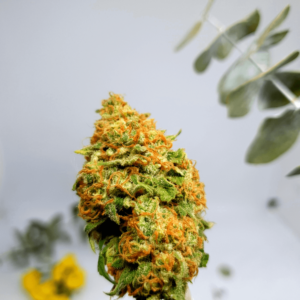
Frequently Asked Questions
1. Is CBC or CBD better?
It depends on what you’re looking for. CBD is widely recognized for its ability to reduce anxiety, promote relaxation, and relieve pain, making it a great all-around cannabinoid for wellness. CBC, on the other hand, is emerging as a powerful anti-inflammatory and neuroprotective compound, with potential benefits for brain health, mood regulation, and pain management. If you’re dealing with stress, anxiety, or sleep issues, CBD might be a better choice, whereas if you’re looking for anti-inflammatory support or neurogenesis benefits, CBC could be worth exploring.
2. Is CBN more powerful than CBD?
CBN (Cannabinol) and CBD have different effects, so neither is necessarily “more powerful” than the other—it depends on the intended use. CBN is often associated with sedative effects, making it a popular choice for sleep aid products, while CBD is better known for its calming and anti-anxiety properties. If you’re struggling with insomnia or sleep disturbances, CBN may be more effective, but for stress, pain, or inflammation, CBD is generally the go-to option.
3. Can you take CBD and CBC together?
Yes! In fact, combining CBD and CBC may enhance their benefits due to the entourage effect, a theory suggesting that cannabinoids work more effectively when taken together. Since CBD and CBC interact with different receptors in the body, using them together might provide enhanced anti-inflammatory, pain-relief, and neuroprotective effects. Many full-spectrum cannabis products already contain both cannabinoids, making it easy to experience their combined benefits.
4. What is CBC cannabinoid used for?
CBC is used for a variety of potential therapeutic benefits, including:
- Reducing inflammation – It may help with conditions like arthritis, IBS, and neuroinflammation.
- Pain relief – CBC interacts with pain receptors, potentially making it useful for chronic pain management.
- Brain health – Some studies suggest CBC promotes neurogenesis, making it valuable for cognitive function and neuroprotection.
- Mood support – CBC has been linked to serotonin receptors, which may contribute to its potential antidepressant effects.
- Skin health – Early research suggests CBC may help with acne and other inflammatory skin conditions.
As research on CBC continues, its full range of therapeutic applications will likely become even clearer.




